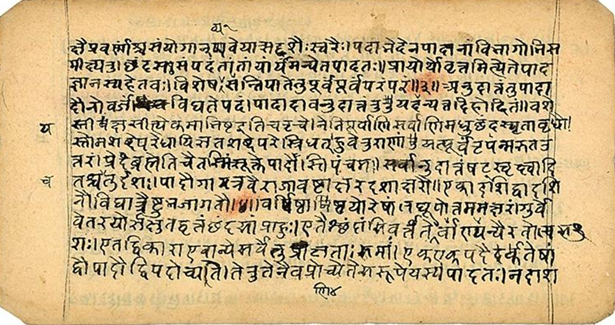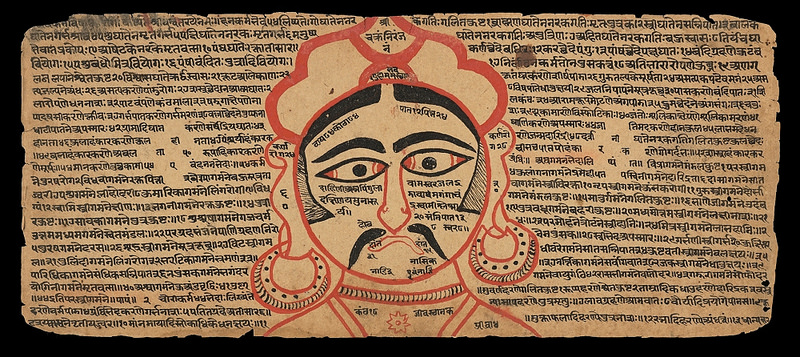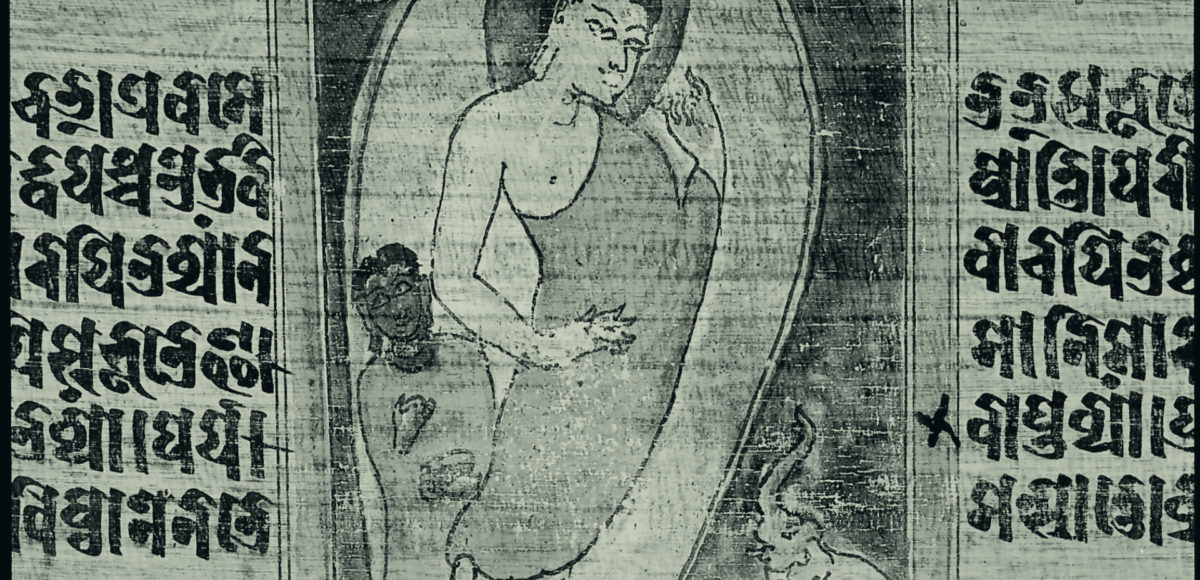mattebhendra-vibhinna-kumbha-piśita-grāsaika-baddha-spṛhaḥ
In this series we bring to you some works from SadAsvAda written by Mohan K.V. SadAsvAda is travelogue of authors Journey through Sanskrit literature where he finds vastness of Sanskrit literature. Sanskrit literature which covers an enormous array of genres from profound philosophical speculation to emotional tear-jerkers to sword-and-sorcery fantacy fiction to sharp satire and beyond. this series presents some selected verse from Vast sanskrit literature, explains its context and discusses it literary features.
सदास्वाद
मत्तेभेन्द्र-विभिन्न-कुम्भ-पि
(mattebhendra-vibhinna-kumbha-
Meaning:
Literally, “rutting elephant king-broken-forehead-meat-mouthful-only-tied-desire”, meaning “He whose only desire is a mouthful of meat torn from the forehead of a rutting tusker”
Context:
This phrase is from Bhartṛhari’s Nītiśatakam. Chances are, if you have ever enjoyed a subhāṣita in the śārdūlavikrīḍita metre, you’ve seen a glint of Bhartṛhari’s genius. This philosopher-king distinguished himself with his eloquence, clarity of thought and wordsmithery in his famous threeśatakas.
This line appears in a verse describing the self-respect of a lion, as an allegory to the conduct of self-respecting men:
क्षुत्क्षामोऽपि जराकृशोऽपि शिथिलप्रायोऽपि कष्टां दशाम्
आपन्नोऽपि विपन्न-दीधितिरपि प्राणेषु नश्यत्स्वपि ।
मत्तेभेन्द्र-विभिन्न-कुम्भ-पिशित-ग्रासैक-बद्ध-स्पृहः
किं जीर्णं तृणमत्ति मानमहताम् अग्रेसरः केसरी ॥
kṣutkṣāmo’pi jarākṛśo’pi śithilaprāyo’pi kaṣṭāṃ daśām
āpanno’pi vipanna-dīdhitirapi prāṇeṣu naśyatsvapi |
mattebhendra-vibhinna-kumbha-piśita-grāsaika-baddha-spṛhaḥ
kiṃ jīrṇaṃ tṛṇamatti mānamahatām agresaraḥ kesarī ||
(śārdūlavikrīḍita metre, 19 syllables per line)“Tormented by hunger, weak with age, brittle all over, facing difficult times, his majesty lost, his very breath close to ceasing – even in such a situation, does a lion, the foremost of all self-respecting beings, whose only desire is a mouthful of meat torn from the forehead of a rutting elephant, stoop to eating withered grass?”This poem is ripe with implications (ध्वनि) – the meat of a rutting elephant, not, say, that of a doe; from the elephant’s forehead, presumably after having killed it in a straight confrontation, not a sly attack from behind.At another level, the very structure of the poem resonates with the implication – the first two lines, describing the lion’s old age and physical frailty, are all composed of short words that break up over and over. In contrast, the third line roars powerfully, a single 19-syllable bahuvrIhi compound, when the lion’s temperament is described. The contrast is so sharp that the 4th line need barely be said aloud – the majesty of the lion’s temperament has already made its physical weaknesses irrelevant.
A THOUGHT FOR TODAY:
अहं च त्वं च राजेन्द्र ! लोकनाथावुभावपि ।
बहुव्रीहिरहं राजन् ! षष्ठी तत्पुरुषो भवान् ॥
ahaṃ ca tvaṃ ca rājendra ! lokanāthāvubhāvapi |
bahuvrīhirahaṃ rājan ! ṣaṣṭhī tatpuruṣo bhavān ||
As would be clear by now, a large part of our project will be fulfilled by beautifully constructed bahuvrīhi compounds. This verse is a fun take on the idea of a bahuvrīhi..A beggar tells a king, “O King, You and I are both lokanāthas – I just happen to be the bahuvrīhi and you the 6th tatpuruṣa!” – lokanātha, literally “world owner”, can either mean King if taken to mean “Owner of the world” (6th tatpuruṣa samāsa) or Beggar, if taken to mean “He whose owner is the world” (bahuvrīhi samāsa).











